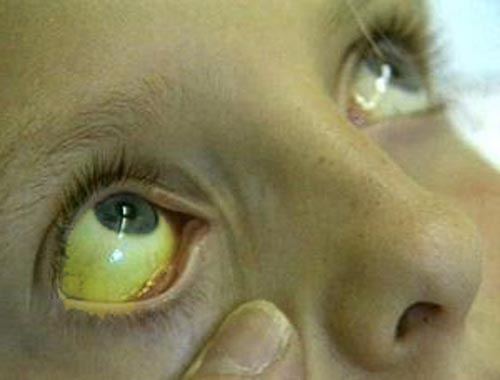Gilbert's syndrome (Nonhemolytic Jaundice)
Gilbert's syndrome is a common, mild liver condition in which the liver doesn't properly process a substance called bilirubin. Bilirubin is produced by the breakdown of red blood cells. Gilbert's syndrome typically is harmless and doesn't require treatment. Gilbert's syndrome is caused by an inherited gene mutation. Someone can be born with Gilbert's syndrome, though it often goes undiscovered for many years. Gilbert's syndrome is often discovered by accident, such as when persone has a blood test that shows elevated bilirubin levels. Gilbert's syndrome is also known as constitutional hepatic dysfunction and familial nonhemolytic jaundice. Presentation usually asymptomatic or mild icterus (jaundice) seen during times of fasting or physiological stress. Gilbert syndrome may be precipitated by dehydration, fasting, menstrual periods, or other causes of stress, such as an intercurrent illness or vigorous exercise. Patients may report vague abdominal discomfort and general fatigue for which no cause is found. These episodes typically resolve spontaneously without curative treatment. No treatment is needed since there is no liver injury or progression to end stage liver disease. Although prognosis continues to be excellent, there is evidence that some patients with Gilbert syndrome may have abnormalities in the metabolism of selective protease inhibitor drugs and monoclonal antibodies used in the treatment of rheumatological disease.
